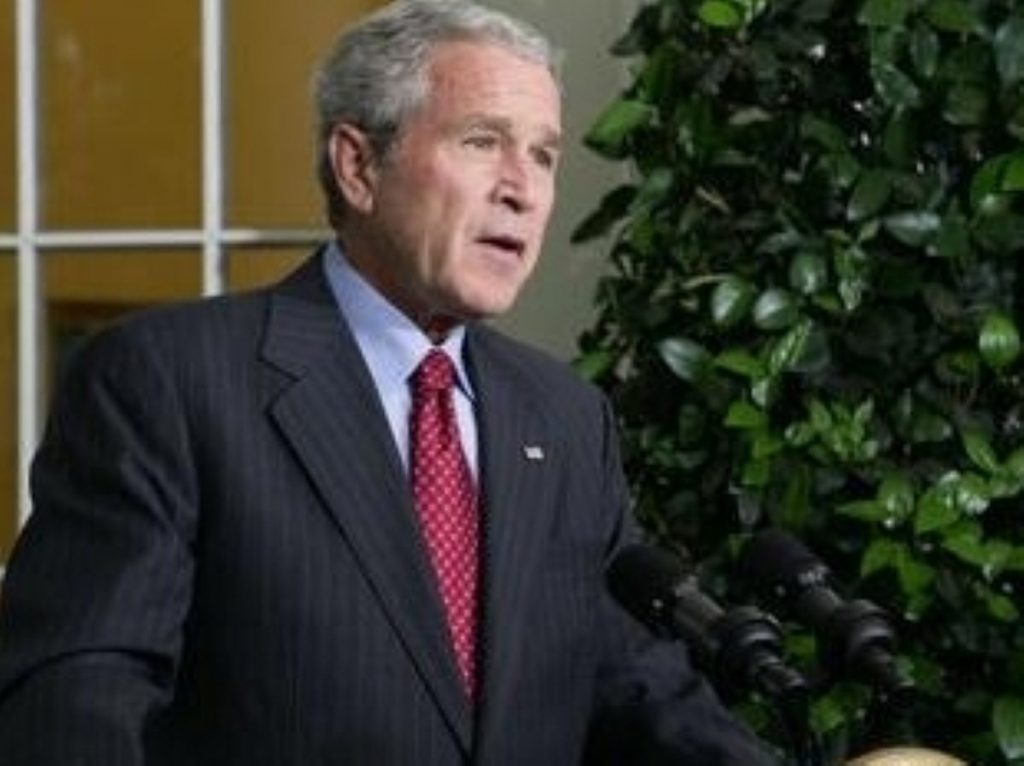Cameron attacks Bush waterboarding claims
By Peter Wozniak
David Cameron has dismissed George W. Bush’s claims that waterboarding terrorist suspects saved lives in the UK.
The prime minister distanced himself from the former US president’s comments that conducting the controversial practise of simulating drowning on terrorist suspects such as Khalid Sheikh Mohammed – who was allegedly waterboarded 183 times – directly prevented attacks on British soil.
Mr Cameron said he objected to the use of waterboarding – interpreted as torture by the UK government – on both ethical and practical grounds.


“I think torture is wrong and I think we ought to be very clear about that,” he said. “And I think we should also be clear that if actually you’re getting information from torture, it’s very likely to be unreliable information.”
“I think there is both a moral reason for being opposed to torture – and Britain doesn’t sanction torture – but secondly I think there’s also an effectiveness thing about what he said.”
The prime minister even suggested the practises condoned by the Bush government may have made the problem of terrorism more severe.
He added: “I would say if you look at the effect of Guantanamo Bay and other things like that, long-term that has actually helped to radicalise people and make our country and our world less safe, so I don’t agree.”
President Bush has remained unrepentant over the use of the practise since leaving office in 2009.
Speaking on the release of his book ‘Decision points’ last week, he said of Khalid Sheikh Mohammed: “We capture the guy, the chief operating officer of al-Qaida, who kills 3,000 people. We felt he had the information about another attack.
“He says, ‘I’ll talk to you when I get my lawyer’. I say, ‘What options are available and legal?'”
Mr Bush claimed attacks on Canary Wharf and Heathrow airport were foiled as a result of the controversial interrogation technique.












